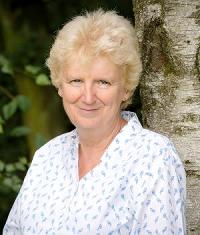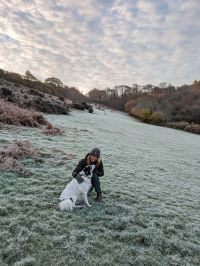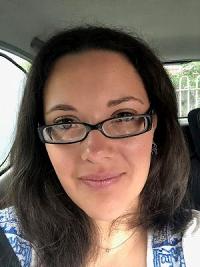Our thoughts on International Women's Day
8 March 2023
This International Women’s Day, we asked some of our staff to share their experiences of working in the veterinary sector, and their views on the future of diversity and inclusion. Here is what they had to say...
Pam Mosedale, QI Clinical Lead

I qualified when women vets were very much in the minority and I went into mixed practice. The practice was great and very supportive, but some of the farmers certainly had to be won round.
“Don’t send a new graduate or a little girl,” was always tagged on to one particular farmer's request. Despite trepidation, a late-night calving that went well convinced him I knew what I was doing.
Some of the prejudice on the small animal side, surprisingly to me, was from other women who only wanted to see male vets. I think, and hope, those days are over now, and today we have a predominantly female profession.
Although well ahead of their time, the idea of a female partner was one step too far for the Yorkshire practice I was working with, so I decided to move on. They actually said: “We are really sorry you are leaving. If you were a man, we would have offered you a partnership.” I eventually became a partner in a different practice a few years later.
Things have improved massively for women in the profession since I qualified, but we must all make sure we treat everyone equally. We don’t want the male vets, or anyone else, to feel as the female vets did in the 70s and 80s.
We should all support each other as part of a great profession, regardless of gender, race, lifestyle or anything else.
Georgia Monaghan, Senior Communications Officer

There are so many inspiring women working in a range of roles in the veterinary sector. While we are all different, something that we have in common is a shared interest in animals and an intention to help the people that care for them.
There is a lot of conversation about diversity and inclusion in the veterinary sector. While we are a progressive sector compared with many others, there is still a long way to go. I believe that better representation and co-production would be good steps to improve diversity and inclusion.
Jennifer Morris, Assistant Editor for Veterinary Evidence

I have an MA in publishing from Kingston University. I ended up at RCVS Knowledge because I wanted to be involved in something that makes a difference to society, whilst using my skills from the publishing industry, one that I am proud to be in.
Veterinary Evidence is a journal that publishes content relating to evidence-based veterinary medicine (EBVM) and its application in veterinary practice to enhance the quality of care provided to patients. My family has owned dogs and cats my whole life, and I am very much a dog person. It gives me a sense of purpose knowing that what we publish directly affects the care of animals.
At Veterinary Evidence, we are completely inclusive. We accept papers from any veterinary professional or paraprofessional from all over the world, without any paywall barriers. Our peer-review process is double blind and therefore avoids any discrimination, and our articles are completely open access, which means they are free to read. The next steps would be for more and more veterinary journals and publications to adopt similar processes. We proactively encourage veterinary students, veterinary professionals and paraprofessionals to submit to Veterinary Evidence, and as a team we have material and are preparing presentations to assuage any uneasiness when it comes to the publishing process.
Sara Carbone, Head of Communications and Digital

As someone very new to the veterinary sector, I find the presence of so many women in a variety of different roles, not just clinical ones, very empowering. The desire to have a positive impact, to collaborate, and to continuously improve how we do our work are very relatable traits, that I think exemplify how I, as a woman, aim to live my life and how many of us do also. The sense of community and drive towards a greater good are palpable, and something we should aim to build on the future.
I hope that, in the future, the veterinary sector will becoming increasingly diverse and to showcase the broad variety of people incredibly passionate about animal welfare, as this overlaps with so many other societal causes. There is a lot of work to be done in this area, and I am confident we can step up to the mark to turn this into a reality.
What has your experience been?
If you'd like to share your story with RCVS Knowledge, write to us at [email protected]